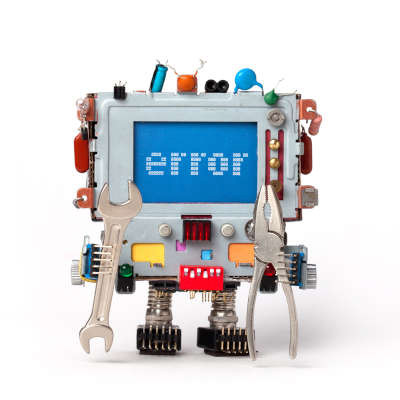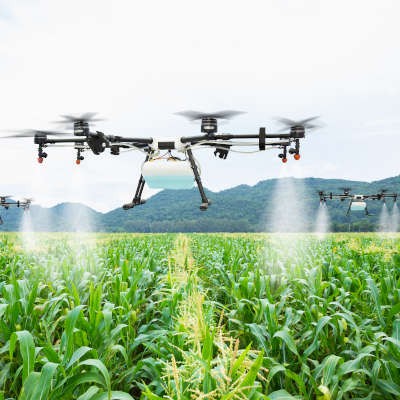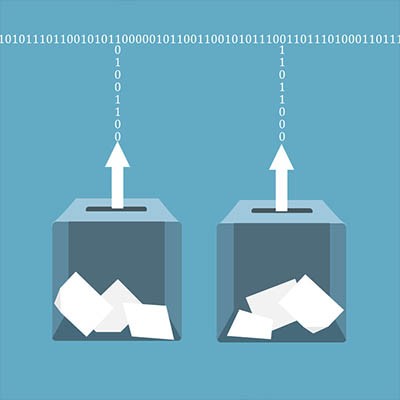Kornerstone Technology Blog
For many, the New Year is a time of renewal and fresh starts, allowing us to turn the page and begin our next lap around the sun on the right foot. That said, the holiday is also steeped in traditions—for instance, the Times Square celebration, where a massive ball is slowly dropped to signify the countdown until the calendar officially shifts from one year to the next.
This tradition has a fascinating history, based mainly on the technology of the times.
Technology has been a consistent force in the betterment of humanity, constantly pushing it to reconsider old ways of doing things and what could be improved. Key industries that have just about always utilized technology, from factories to old-fashioned wheels and farm equipment, include agriculture and manufacturing. In fact, 3D printing might be able to help produce food! Let’s look at what this technology could do to fill the stomachs of hungry people around the world.
Love them or hate them, cutesy little acronyms like this just don’t have a place in business communications. However, for some people, they’ve become so habitual that they almost can’t help but use them everywhere. In light of this lack of meaning, one artist and tinkerer has devised a way to judge whether or not the “LOL” is sincere.
When it comes to innovative new technologies, look no further for inspiration than good-old classic science-fiction and pop culture. You might be surprised by how many concepts first seen in works of fiction have made their way into our day-to-day lives. Let’s take a look at some of the more noteworthy examples.
Those born in the 80s (as well as some others) will likely recognize
“Up-Up-Down-Down-Left-Right-Left-Right-B-A-Select-Start” as the Konami Code, a famous cheat code that first appeared in 1986. Since then, the Konami Code has spread, now being featured in software titles and websites. Let’s consider the origins of the Konami Code, and how it has been featured in the zeitgeist.
Per our role as cybersecurity professionals, part of our responsibility is to put the developing threats out there in the world into perspective for the clientele that we serve. After all, with so many modern threats seeming to border on science fiction, it is only natural for smaller organizations to assume that their size will protect them from such attacks through simple lack of interest—or even that such threats will never be used practically at any significant scale. Unfortunately, these assumptions are too often mistaken.
When the Internet was established, it was a marvel. Now people could move information across the world in a matter of seconds. This is why the term “world wide web” was coined. Nowadays, there are literally billions of users on the Internet and the rules have had to be changed. This has some online services in conflict with government regulations and has an impact on how users are able to use the Internet. Let’s look at a couple of examples.
Internet connectivity is an increasingly important component to a business’ capabilities in this day and age, as well as all the more crucial to an individual’s everyday life. However, with financial difficulties restricting this access for many, the Federal Communications Commission has stepped in. With a $50 subsidy being made available to low-income homes each month, this situation warrants a closer look.
It’s no secret that 2020 has been relatively tough on all of us, down to the technology that so many use and rely on each year. Now that we’re in the home stretch towards a hopefully better 2021, let’s look back at some of the technologies that didn’t deliver as promised and some of the other issues that we saw this year—some relatively harmless, and some decidedly not.
Workplace engagement has long been a conundrum--how do you maximize the productivity of your business without alienating your team through quotas and ironclad policies? Many businesses have been finding that an effective way to do just that has been to use a concept known as ‘gamification.’ Let’s explore gamification and how it might be useful to you.
Your employees are your greatest asset, which means that they need to be carefully managed and maintained, just like any of your other productivity-boosting assets. The difference is, your employees aren’t just another solution - they’re human beings, and as such, they aren’t tirelessly motivated. In fact, if your employees aren’t treated properly, they could… burn out.
By now it should be clear that the same computer might not work for two different businesses’ needs. In previous articles we discussed how to select the right CPU, RAM, storage, and display for your desktop. This final post will be dedicated to some of the topics that couldn’t fit into previous parts.
When considering a business’ strengths, there is a tendency to focus on its more quantifiable aspects - it generates x dollars in revenue, or leverages advanced solutions a, b, and c. While these kinds of competitive advantages are valuable to have, it is also important to recognize how critical one of your more qualifiable strengths can be: your company culture.
Election Day for the United States is November 6th, and regardless of your feelings regarding U.S. politics, the fact of the matter is that millions of Americans will soon go to the polls and cast their ballots. Unfortunately, what many of them don’t realize is how insecure their voting machines actually are, and how they are potentially putting their vote at risk.
To educate the leaders of tomorrow, using technology from the past isn’t going to cut it. While some schools are still using technology from the last century, others are moving forward. Today, we will take a look at classroom technology innovations, and how to get this exciting new technology in the hands of more students.
Are you drowning in old computer cables? Do they sit in a drawer and take up space? Chances are that you’ll have quite a lot of old cables that are sitting around collecting dust due to your organization picking up new devices that come with even more new cables. Sure, you might think you still need that old 25-pin serial cable for that legacy scanner from 1997, but it’s probably time to let go. While there is some merit to keeping old cables around just in case, the proper alternative to throwing out unneeded cables is to recycle them.
It all goes to show: don’t mess with the IRS. The prison system has two new residents, after Anthony Alika, 42, and his wife Sonia, 27, were sentenced for filing fraudulent tax returns through the often-exploited “Get Transcript” site maintained by the Internal Revenue Service. In addition to their incarceration, the Alikas will each be responsible to pay restitution to the IRS.























